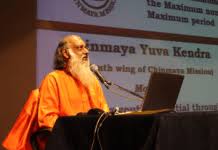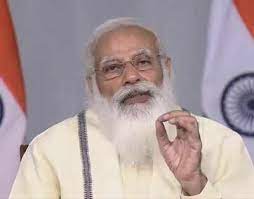Noida, India – Chinmaya Mission, one of India’s foremost spiritual organizations with a global reach, has launched a new initiative to address the growing challenges of mental health, offering specialized training and guidance on stress management. This recent move comes as part of the organization’s ongoing mission to provide practical spiritual tools for personal development and mental wellness.
During a seminar-cum-workshop titled “Evoking Excellence: Wholeness in Education – Spirituality, Self-Care, and Stress Management,” held for educators from over 65 schools across the National Capital Region (NCR), Swami Chidrupananda, a senior leader within Chinmaya Mission, addressed the pressing need for mental health awareness and effective coping strategies. “In today’s trying times, it is important to keep expectation levels low and use knowledge as a transformative tool,” Swamiji remarked. He further advised, “Expect but don’t insist,” emphasizing that letting go of rigid expectations can significantly reduce stress and frustration.
The seminar aimed to equip educators, who often shoulder immense responsibilities, with tools for self-care and stress relief, enabling them to foster healthier and more supportive environments within their institutions. Swamiji engaged participants with questions that delved into the heart of societal challenges, such as, “Why are we the way we are?” and “Why does society struggle with issues like corruption?” Through these reflective questions, participants explored spiritual awareness as a vital component in addressing both personal and societal challenges, citing a lack of spiritual grounding as a common root cause of widespread stress and moral dilemmas.
Swami Chidrupananda described spirituality as a form of energy that strengthens and channels inner resilience, helping individuals better manage life’s challenges while fostering harmonious relationships. In his talk on Self-Care, he dispelled the common misconception that self-care is selfish. He explained that self-care, when rooted in balance, promotes well-being across all dimensions of life. Drawing from Chapter 6, Verse 17 of the Bhagavad Gita, he emphasized the importance of moderation in daily activities as a pathway to mental, emotional, and physical health.
The workshop also highlighted that stress often originates from inner conflicts, not just external pressures. Swami Chidrupananda underscored the transformative potential of knowledge when it’s put into practice, encouraging educators to actively apply the insights gained. “The value of knowledge is not in its accumulation but in its application,” he said, urging participants to embrace mindful action over passive learning.
Among his practical suggestions for stress management, Swamiji advised educators to accept the world as it is, focus on essentials, maintain self-awareness, and remain open to learning from others. These steps, he noted, can help reduce stress and improve overall quality of life, both personally and professionally.
The event concluded with educators feeling inspired and equipped with new perspectives on how to approach mental health challenges. Chinmaya Mission’s commitment to mental well-being, coupled with its holistic approach to spirituality and self-care, signals a positive direction for addressing mental health needs across diverse sectors, including education, as part of a broader societal effort toward well-being.











